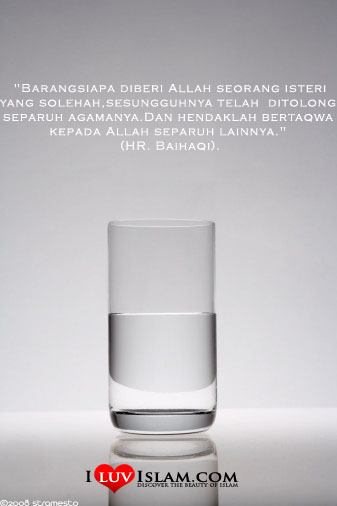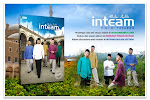Thursday November 19, 2009
By GEETHA KRISHNAN
PUBLIC perception towards waste separation at source has to change if the lifespan of landfills is to be extended.
The Sungai Sedu landfill in Banting was to have ceased operations in June. Due to the scarcity of landfills in Selangor, Sungai Sedu remains open for municipal waste from Sepang and Putrajaya, a federal territory.
A pilot project to separate solid waste initiated in Putrajaya on Aug 29 by the Housing and Local Government Ministry aims to reduce the waste sent to landfills nationwide by 40%.
 Changing the mindset: Safian (right) and Muhamad Zubir distributing flyers on the waste separation at source pilot project in Putrajaya.
Changing the mindset: Safian (right) and Muhamad Zubir distributing flyers on the waste separation at source pilot project in Putrajaya. The six-month project partners the National Solid Waste Management Department under the ministry with Perbadanan Putrajaya (PPj), Alam Flora Sdn Bhd and Konsortium SSI-Schaefer.
“The Solid Waste Management Act 2007 stresses on recycling and has a special allocation for waste separation at source,” emphasised Housing and Local Government Minister Datuk Seri Kong Cho Ha at the launch.
The pilot project involves 170 apartments in Precinct 8, 276 houses in Precinct 9 and 105 houses in Precinct 10. Schaefer has supplied altogether 1,800 120-litre mobile garbage bins (MGB) and 10-litre mini bins.
Pointing out the difference, Khairil Ibrahim of Konsortium SSI-Schaefer said: “The two-wheel MGBs come with green lids for organic waste like food, fruits, vegetables, leaves, prunings, flowers, twigs and small branches or grey covers for recyclables comprising paper, glass, plastic and metal.”
PPj city services chief assistant director Muhamad Zubir Saran said the collection schedule for organic waste was on Monday and Thursday while recyclables were picked up Monday.
“The ministry has loaned PPJ a compacter for the waste separation project and a lorry for collecting recyclables since the launch of the recycling project in 2004,” he added.
 Up it goes: Mondays and Thursdays are organic waste collection days under the waste separation at source pilot project in select housing precincts in Putrajaya.
Up it goes: Mondays and Thursdays are organic waste collection days under the waste separation at source pilot project in select housing precincts in Putrajaya. Recyclables only amount to 5% of the solid waste collected in Putrajaya, amounting to 14,378 tonnes in 2008. The ministry has set a target to increase recycled waste nationwide from 5% to 22% by 2020. Solid waste produced by an individual in Putrajaya averages to 0.5kg to 1.5kg per person.
Jalan P9B & P9D Neighbourhood Watch committee member Safian Md Salleh said while the waste separation at source initiative was to be applauded, the biggest hurdle lay with changing mindsets.
“We are dealing with old habits here where people, especially those from villages, are used to discarding refuse under the banana tree. It is a good start but I foresee a long process.”
Working with PPj, the committee has been distributing flyers to educate the chosen households on the proper solid waste separation methods.
“The feedback received is that the process is cumbersome but necessary once the Solid Waste and Public Cleansing Management Act 2007 is enforced come February 2010,” added Safian.
Precinct 9 resident and community chef Roslan Adnan has his work cut out for him when the need arises for communal cooking. With the two-bin system, he needs to separate cooked food and gravy.
“It takes getting used to but once you develop a habit, I don’t think it is so difficult. It takes maybe 30 seconds more but residents need to consider the overall impact including the state of our landfills,” he suggested.
 (Left) A little effort: Roslan putting his recyclables into one of the mini bins sponsored by Konsortium SSI-Schaefer for selected kitchens in Putrajaya.
(Left) A little effort: Roslan putting his recyclables into one of the mini bins sponsored by Konsortium SSI-Schaefer for selected kitchens in Putrajaya. Under the pilot project, PPj has also identified a 0.6ha site in Precinct 20 for solid waste composting, to be jointly maintained by UiTM and Alam Flora. Funding will come from the ministry.
Composting will convert organic waste to soil conditioner or organic manure for Putrajaya’s vast landscaping.
The ministry is also exploring suitable alternatives like vermiculture, a method of composting by breeding a species of earthworms.
Back in 2004, Putrajaya was selected as the national model for a recycling project, implemented by supplying residential areas with recycling bags, setting up recycling kiosks at apartments and establishing collection centres at government or private buildings and all 16 primary and secondary schools
Recyclables statistics for 2008 revealed that government and private sector buildings contributed 48%, housing 22%, recycling centres 18% and schools 11%.
It is acknowledged that the collection in Putrajaya is noticeably higher than other cities in the Klang Valley hence it is understandable for the pilot project to begin here.












.gif)








4 comments:
There should be more initiatives like this one. Our planet deserves this.
Thanks!
Ana
You are sharing nice information about our planet.
water softeners
Very nice information sharing by you.
water softener UK
You guys are superb ..Really great article you've shared.very informative!!!
Difference between hard and soft water
Post a Comment